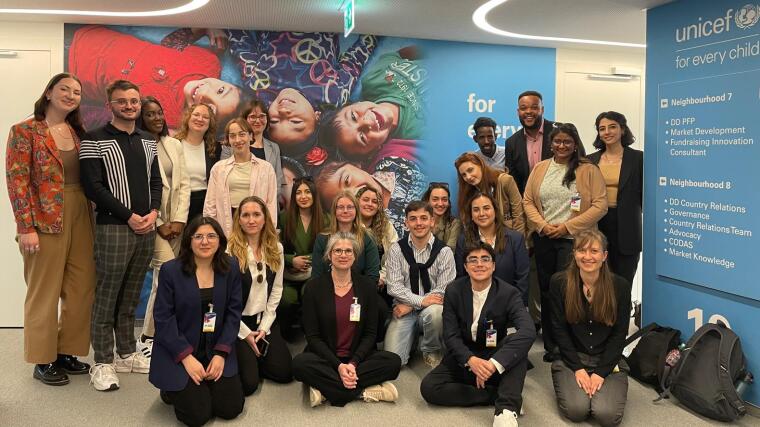
Published:
From April 7th to 11th, 2024, the IOCM program's 2024 cohort undertook a study trip to Geneva, Switzerland, to visit several international organizations (IOs). This year, the program was focused around opportunities for and challenges to international cooperation in light of nationalist tendencies and an increasing number of populist governments. As such, the aim was to gain a deeper understanding of the work, mandates, and challenges faced by these organizations, as well as to discuss recent developments and changes in the field of international cooperation and crisis management.
April 8, 2025: UNHCR, OCHA and UN Museum
As our first appointment on Tuesday morning, we visited the UN High Commissioner for Refugees (UNHCR), where we learned about the agency’s mandate gained valuable insights into how the UNHCR manages to rapidly respond to emergencies through their regional offices and emergency stockpiles. During the Q&A session, we learned about the UNHCR's influence on domestic asylum policies regarding refugees and resettlement processes.
Our second visit of the day was to the Office for the Coordination of Humanitarian Affairs (OCHA), where we discussed OCHA’s role in emergency coordination and the importance of efficient and time-sensitive response mechanisms. We were also given the opportunity to speak with an experienced field worker, who explained the processes and steps taken by OCHA in the first 24 to 48 hours after a sudden onset disaster occurs. The meeting was a valuable opportunity to gain key insights into the day-to-day realities of humanitarian affairs coordination.
At the UN Headquarters we then also had the unique opportunity to visit the UN Museum. There, we were presented with the history of the League of Nations, while observing some original copies of official documents. Seeing such a close and first-hand account of the history we’ve read so much about was truly enlightening.
April 9, 2025: EU Delegation, UNICEF and ICRC
On Wednesday we attended a meeting with the European Union delegation in Geneva where we gained knowledge on the work of the EU Delegation to the UN and IOs in Geneva, which centers around the representation of coordinated EU interests at the multilateral level. During the subsequent Q&A, we also discussed some of the central issues currently occupying the Delegation, such as managing the EU’s response to the Russian war of aggression against Ukraine or shifts in gender policy that strain multilateral consensus.
We then continued directly to UNICEF, where we learned about the agency’s emergency response framework and their coordinated efforts with local partners and governments. While one of the world’s largest recipients of private donations, we also discussed the organization’s severe struggles due to cuts in funding from traditional state donors such as the United States.
Our last meeting of the day was held in the Geneva School of Diplomacy where the school’s headmaster Dr. Sultan-Kahn welcomed us with valuable insights into diplomacy and introduced us to Alexander Sultan-Kahn and his colleague Assem Eleessawy from the International Committee of the Red Cross. After a short introduction into the work of the ICRC, they were generous to answer our many questions regarding their experiences working in the field and their view on current conflicts, as well as the issue of neutrality and impartiality for IOs in crisis areas.
April 10, 2025: WTO, Permanent Missions of Armenia and Mexico, UNAIDS
On Thursday morning we had the opportunity to visit the WTO, where we first received an introduction into the work of WTO, current trends in global trade, as well as internship and career opportunities. In the second half of the meeting, we learned about how trade policies can support, instead of hinder, efforts against climate change. Overall, our visit to the WTO gave us a better understanding of the day-to-day operations at the WTO.
After a brief break we headed to the Permanent Mission of Armenia to the UN office in Geneva. There, Ambassador Hasmik Tolmajiangave us a warm welcome and briefly introduced us to the rich culture and history of Armenia, which was followed by a lively Q&A session, in which we learned about the day-to-day work of the mission in Geneva, regional developments, and security and human rights issues in the South Caucasus. This meeting was particularly impressive as we had the opportunity to examine International Organization participation from the perspective of small countries.
The group then split up for two simultaneous meetings with one proceeding to the Joint United Nations Programme on HIV and AIDS (UNAIDS). After a brief tour of their office building the group was presented with an overview of the history and work of UNAIDS by experts from their data and human rights divisions, which was followed by an engaging discussion that centered around the future of the agency, current funding gaps and the impact of growing anti-LGBTQI+ movements on the fight against AIDS. The experts were very open and committed, and their enthusiasm for their work was evident.
The other half of the group visited the Mexican Permanent Mission to the United Nations and other IOs. We had the privilege to meet with H.E. Francisca E. Méndez Escobar, Ambassador and Permanent Representative, and M. Fernando Espinosa, Deputy Permanent Representative. The ambassadors shared an overview of the mission’s daily operations, highlighting how they coordinate and engage with various international bodies in Geneva, which was followed by a fascinating discussion surrounding Mexico’s priorities and values in multilateral cooperation.
We are very grateful to have been given the opportunity to travel to Geneva and gain first-had insights into the day-to-day work of international organisations. As expected, current global political developments and their impact on IOs and their work were omnipresent in the various visits and discussions. Whilst the impact is potentially devastating, this field trip was incredibly valuable and timely in providing unparalleled insight into these current challenges.
This study trip was only made possible by the generous contributions of our friends and partners, the Ernst Abbe FoundationExternal link and the Faculty of Social and Behavioural Sciences at Friedrich Schiller University Jena.
-
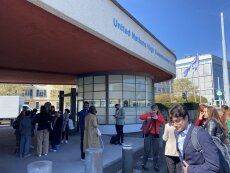
Image: Leonie Mayer -
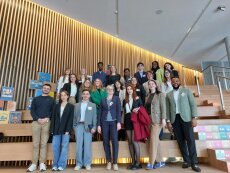
Image: Aletta Mondré -
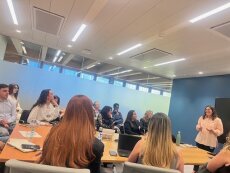
Image: IOCM student -
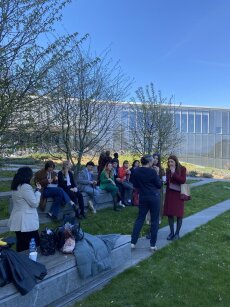
Image: Leonie Mayer -
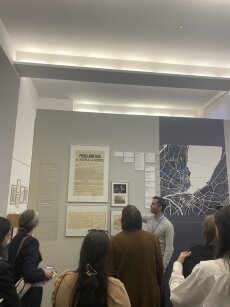
Image: Leonie Mayer -
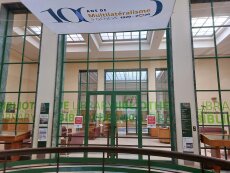
Image: Aletta Mondré -
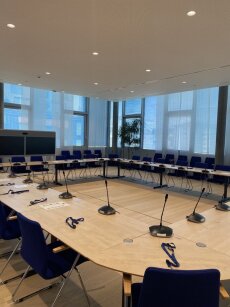
Image: Leonie Mayer -
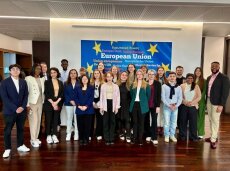
Image: EU Delegation in Geneva -

Image: Leonie Mayer -
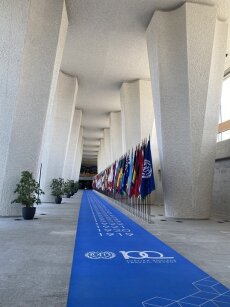
Image: Leonie Mayer -
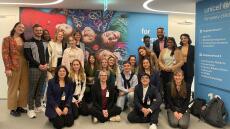
Image: Rieke Langel -
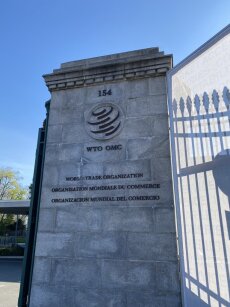
Image: Leonie Mayer -

Image: Aletta Mondré -
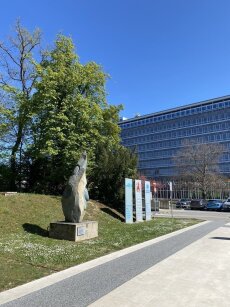
Image: Leonie Mayer -
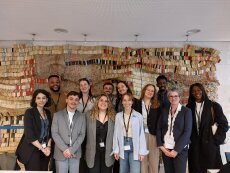
Image: Aletta Mondré -
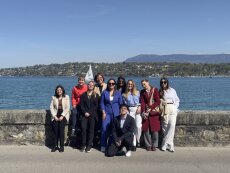
Image: Natalia Benitez Rosas -
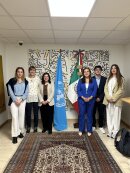
Image: Natalia Benitez Rosas -
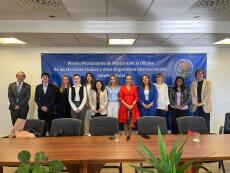
Image: Natalia Benitez Rosas -
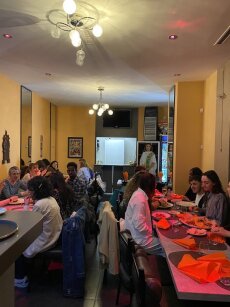
Image: Leonie Mayer